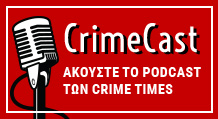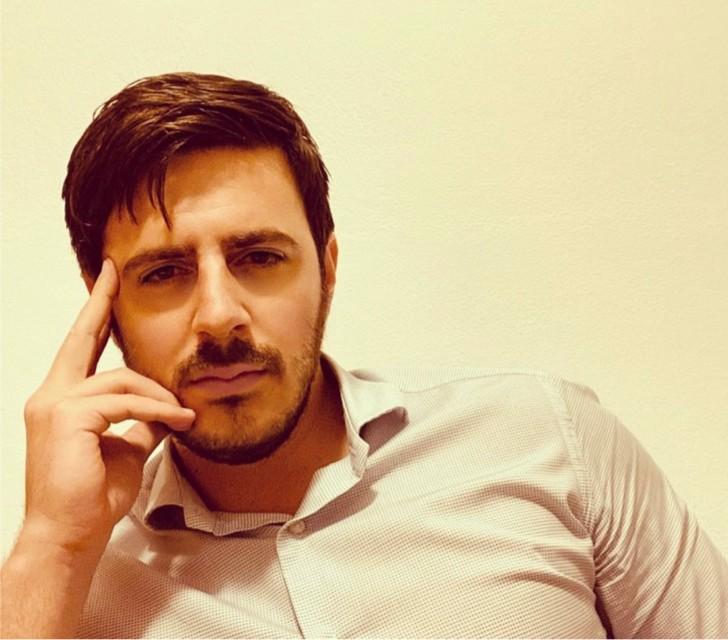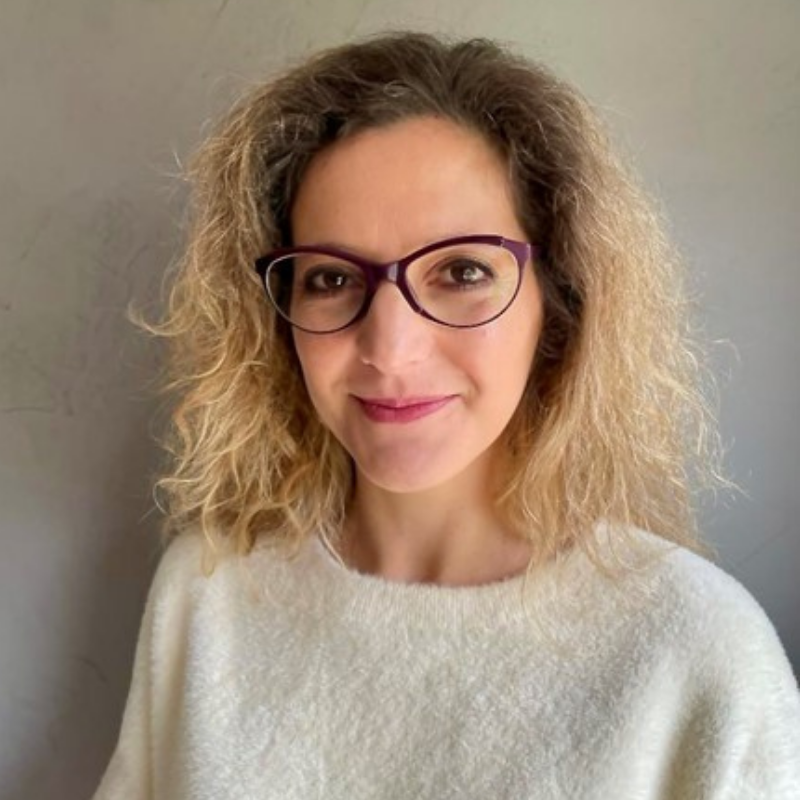''Βe resilient, look after yourself, find support and go''
Introductory note – Dr Ioannis Papadopoulos
Institute of Criminal Justice Studies
University of Portsmouth, UK
The year was 2017 and the location was Cardiff, Wales. I was arranging my notes for a presentation during the Eurocrim17 International Conference when a colleague informed me that the European Society of Criminology Working Group on Qualitative Research Methodologies and Epistemologies (ESC WG-QRME) would hold an informal meeting for members. The ‘qualitative’ part of that sentence intrigued me as I was already examining methodological alternatives for my own research. I checked the time, left the auditorium and wandered around the vast University halls in search of the said meeting. After managing to locate the room, I hesitantly entered, only to be welcomed by a cheerful, open and particularly radiant colleague who eagerly informed me about the aims and purposes of the Working Group. It was not only the invaluable information that she shared with potential members but also her experience and passion in conducting qualitative research and further elaborating on the followed methodologies that caught my attention. That was Rita. Since then, the WG-QRME became an important part of my academic life, where I always found shelter as regards my qualitative research concerns. Cardiff led to Sarajevo, Bosnia and Herzegovina; Sarajevo to Porto, Portugal; Porto to Ghent, Belgium; Ghent to Bucharest, Romania and soon Bucharest will lead to Athens, Greece in May 2021. Today, being a proud co-chair of the Working Group, it is with great honour and pleasure that I conduct this interview for the Crime Times online magazine with one of the most qualified; highly trained and committed colleagues in the field of criminology.
_____________
More Information about Rita Faria:
Rita Faria (rfaria@direito.up.pt) is currently Assistant Professor of Criminology at the School of Criminology - Faculty of Law of the University of Porto, as well as Director of the Interdisciplinary Research Centre on Crime, Justice and Security (CJS). She holds a PhD in Criminology, Masters in Sociology and a Degree in Law. She has been teaching at the Undergraduate and Masters course in Criminology, as well in Doctoral Schools and research seminars in other Europeans universities. Her research interests include white-collar crime, financial, corporate and environmental crime, and research misconduct. She has also been researching and written about the History and Epistemology of Criminology. She is board member of the European Society of Criminology’s European Working Group on Organizational Crime (EUROC) and of the Working-Group on Qualitative Research Methodologies and Epistemologies (WG-QRME). Currently she is also part of the Editorial Board of Crime, Law & Social Change and of The Journal of Qualitative Criminal Justice & Criminology.
_____________
I couldn’t help but notice that in the past you have studied Law; Sociology; as well as Criminology. Would you say that these disciplines are somehow interrelated and if so, in what way?
Well, when the time came for me to choose an undergraduate course, in 1997, there were no courses being offered in Criminology in Portugal. The first one only came to be offered in 2004. And coming from a family of lawyers, Law seemed like the “natural” option. Nonetheless, I was a very unhappy Law student and always felt if offered the remedies without looking into the causes. I was lucky enough that at my senior year in Law there were classes on Criminology and on Philosophy of Law, which were both taught by Cândido da Agra, the founder of the School of Criminology of Porto and its former Director. That had a huge impact on me and it was then that I realized that Criminology would be my goal. Nonetheless, I even finished my training as a lawyer and had the chance to gain some experience in the courtroom.
I then did my masters study in Sociology, in 2009, which helped me a lot to get more acquainted with empirical methods because Law offered no such content; and then I moved on to do a PhD in Criminology, which I finished in 2016. So, in comparison and putting it very broadly, Law is somehow different from Sociology and Criminology, because Law deals mostly with “what ought to be”, how people and institutions should or should not behave, while Sociology and Criminology are mostly empirical sciences that look at how people and institutions behave because of or even despite Law.
Nonetheless, this patchwork of disciplines has proven to be very useful to me. With Law I gained skills on abstract thinking and problem solving. With Sociology I managed to get familiar with the social sciences languages, research process and methods, main sociological theories and worldviews. And with Criminology I finally got to the place I wanted: to study specific topics of crime, deviance and social control by employing empirical methods, by collecting and analysing data, by getting acquainted with criminological scientific literature, and so on.
So, these disciplines definitely became interrelated to me, as all of them helped me grow a set of skills that I think have been influential in my teaching and research activities. Hopping between disciplines also supported me in developing an inter-disciplinary framework which allowed me to have a better understanding of the complexity of social worlds, peoples’ interactions, values, social structures and processes. And the brief experience I had as a lawyer helped me develop a personal, critical lens from which to analyse justice and its institutions, which was then backed up by criminological studies on the functioning of the social control systems and its impact on people’s lives.
Despite my personal experiences, the connection both between Sociology and Criminology, and between Law and Criminology are clear. In Universities, many criminology departments are situated in Law Schools; others have their criminology departments in Sociology or Social studies Schools. There is sociological research that became central to Criminology (for instance, Becker’s Outsiders) and, often, Criminological research topics are extracted from what criminal law considers, at a specific time and place, to be a criminal offense. So, yes, for me, the connection between these disciplines is very explicit.
Your research interests include, among other areas, environmental and white-collar crime, research misconduct and qualitative methods. Could you elaborate a bit on your research background and focus/comment on the areas that are most favourable to you?
I think that it is clear that I have this tendency to look into crimes and harms committed by adults in the course of their legitimate occupations, or professions if you will. In Portugal there is a strong line of research on youth justice and delinquency, as well as in violence (e.g. against women), but that was not the research path I wanted to take. And, when I started, there was not much criminological research in Portugal on crimes of the powerful, or the elites.
My first paper, in Portuguese, was on corruption, where I started transitioning from the legal perspective to the empirical one. Afterwards, when I was preparing my masters’ dissertation, my supervisor challenged me to look into research misconduct. And I continued to explore this topic in my PhD. When doing it, I came to the conclusion that research misconduct (instead of being considered as an odd, exotic criminological topic) should be analysed by white-collar crime scholarship. Why? It is a form of illegal or harmful behaviour conducted by someone (usually granted social or interpersonal trust) in the course of their legitimate occupation. It occurs at the heart of visible and socially relevant institutions, such as universities. From here, we can draw parallels with financial crimes, with some forms of environmental crimes (e.g. pollution by companies), and other occupational or organizational crimes.
I find this specific focus on crime and harms committed by conventional and socially (not to say economic) useful activities and actors to be very challenging as it is a window to how the so-called normative society works and functions but also to how justice systems fail to be effective in such situations. It’s not the underworld of crime, it’s not the shooting galleries activities, it’s not the stigmatized, vulnerable people I look at. I try to look at how “normal”, well-respected social actors and institutions come to break the law, to cause harms, to be exploitative, and many times to escape negative social reactions. I, obviously, am an heir to works of authors like Sutherland but, more recently, to Critical Criminology, to Green Criminology, and so on.
Qualitative methods have become my preferred way to collect and analyse data. I am also member of research projects using quantitative research, but am drawn into the epistemological, ethical and methodological challenges of qualitative research in Criminology and how it allows for complexity and theory generation.
One of your most recent publications, entitled ‘Interviewing Elites, Experts and the Powerful in Criminology’ has been referred upon as a practice-oriented book. Given that its uniqueness lies on the fact that it places focus on the decision-makers in the criminal justice system rather on criminals, would you say that you agree with this comment? According to your opinion what is this book’s contribution to contemporary research / academic community?
Well, it is a “practice-oriented” book for researchers when preparing and executing data collection, mostly. At least that was the purpose when Olga Petintseva, Yarin Eski and I wrote it: especially for novice researchers who need to conduct interviews with the powerful, the elite or with experts on sensitive, criminological topics. It does not focus exclusively on the decision-makers in the criminal justice system - although Olga’s contribution to that is fantastic; it also presents examples on conducting qualitative research with actors or offenders who may considered as holding power or to be elements of elites, such as scholars committing research misconduct, or medical doctors as in the case of Mary Dodge’s study described in the book.
When Olga, Yarin and I decided to write the book, it was based on our own research experience during our respective PhDs, as well as in the experience we got from training Doctoral Students, at Ghent University, who were using interviews with samples of experts and elite actors. We wrote it because we concluded that there was not enough literature on “how to”. There are handbooks on qualitative research, namely in Criminology, and there are published papers with the results of qualitative research. But they didn’t really give advice on how to deal with the messiness or complexities of doing research, or on how much you have to prepare beforehand, or on the power imbalances, or on the ethical reflections that come up when you’re interviewing elite people or experts holding particular knowledge and asking them about their (or their peers’) criminal and harmful behaviour, or their (or their peers’) crime control practices. Handbooks tend to be too broad, or too centred on the more common youth, street offender, or on victims. Published papers, on the other hand, due to the current scientific publishing system, tend to limit the methods section and pass on this image that research is a clear-cut process, where you simply ask your research questions, choose your methods and samples, collect the data and then present the results of the analysis.
But empirical research, especially qualitative, is not always this simple, and you need to make strategical decisions (e.g. based on available time or budget, or on the features of your sample), then weight in the benefits or limitations of each methodological decision and how it is going to affect your data and, thus, your results. So, I hope the book can contribute to improving researchers’ reflexivity, to help broaden their methodological toolbox to conduct good research with a very specific sample: elites, experts or the powerful, who, as you can imagine, may sometimes not be too collaborative when being asked about their deviant behaviours or harmful practices.
You are currently affiliated with the School of Criminology, University of Porto. Could you elaborate on the current status of criminological research in Portugal; are there mentionable difficulties that your students often encounter in the field?
Surprisingly or not, when the works of Criminal Anthropology by Lombroso and Garofalo came out, Portugal very quickly acknowledged the need to produce “scientific” work on the offender, or to analyse the state of prisons and their populations. So, in the turn from the 19th to the 20th century, Portugal had a lot of well-known scholars producing what was, at that time, innovative work on crime and the criminal. However, during the Estado Novo dictatorship, from 1933 to 1974, social sciences were not given the opportunity to develop and grow as the regime considered the most relevant disciplines to be Medicine and Law, which were also very conservative. There were incidents of purges of scholars considered to be critical of the regime; many people had to leave the country and many Portuguese scholars got their PhDs abroad. That was also what happened with Cândido da Agra, the founder of the School of Criminology, who got his PhD in Leuven, Belgium. Upon returning, he was first based at the Faculty of Psychology of the University of Porto, where he put together a team of young scholars researching deviant behaviours such as drug use. He then was given the chance to help create the Faculty of Law (which is celebrating its 25th anniversary this year) and immediately proposed for the existence of a specific department: the School of Criminology. So, the Faculty of Law and its School of Criminology were pioneers in Portugal not only in researching criminological topics, but also in creating and offering undergraduate, masters and PhD courses in Portugal. Currently there are other Portuguese universities doing research and offering criminology courses, which I think is a good sign of vitality for Portuguese Criminology.
Due to all this work from the start of the 21st century on, the School of Criminology has contributed immensely to the development of the field in Portugal. This was also boosted by all the international connection and cooperation it promoted since the start because, back then, there was no real national criminological community.
I do believe that criminological research in Portugal is reaching a very promising stage, and our students now have a clearer picture of what Criminology is when they’re applying. Nonetheless, even during this later stage, Portugal has been hit by economic and social crises (the financial one, in 2010, and now a new one looming with the pandemics) which have impacted the job market for those who graduated in Criminology or have impacted the resources and funding opportunities available to conduct research, to attend international conferences, to hire new lectures and research assistants or to offer new courses. For instance, many of our PhD students in Criminology have to conduct their research while working elsewhere full-time, as there are not enough national grants available.
Nonetheless, things have evolved in the last 10 or so years. For those students who wish to apply to the job market and become practitioners, I do feel that institutions are now, more than ever, acquainted with the skills and added-value of having a criminologist on their teams; for those students who want to pursue an academic career, there is now enough know-how to support them in applying for available grants, or to support their research efforts by giving them access to research networks, international working groups, publishing opportunities, and the like.
Among your other research interests, you are also co-chairing the Working Group on Qualitative Research Methodologies and Epistemologies (WG-QRME), as part of the European Society on Criminology (ESC). Could you describe the role of the working group in the context of the ESC and further present its research interests?
The ESC embraces a series of working groups that are steered by the ESC community and that can be found in its webpage. In 2016-17, Olga Petintseva, Yarin Eski, Julie Tieberghien and I, looking for more permanent forms of collaborating on qualitative research and to make part of a community of “qual researchers”, concluded that the ESC had no working group for qualitative methods, although there existed and still exists a working group on quantitative methods. We proposed the creation of the WG-QRME to the ESC board, never imagining that they would really take it seriously as we had just recently graduated from our PhDs and were, mostly, not well known in the Society. To our surprise, it was accepted and I’m very happy to currently co-chair the WG-QRME together with Olga, Mike Mills and yourself, Ioannis!
In the context of the ESC, the group tries to support its annual conferences by providing pre-arranged panels, by helping with the program, and by promoting the Society on a wider level. The WG-QRME members have access to newsletters with news on members’ research and publications, upcoming events and calls for papers, as well as other relevant information. Not only that, but the WG-QRME has been actively co-organizing scientific events, such as the BEM (Between Edges and Margins) conferences and online seminars on innovative research methods; or, together with The Centre for the Study of Crime (CSC - KEME) in Greece, the “Contemporary societies in motion: Pioneering qualitative research methods in the study of deviance and social control’ online conference, which will take place on 27-28 May 2021.
What all these initiatives have in common is their focus on methods, which I think it’s very valuable. I already mentioned how, in published papers, research methods are described in a very clear-cut and simple way that does not fully coincides with how research really happens. However, when conducting empirical research, what all researchers share and have in common is their need to use research methods. For instance, qualitative research methods on the study of corruption as white-collar crime may very well be adapted, applied and valued in studies in Transitional Justice and post-conflict societies. Researchers may tend to specialize in their research topic, or on specific sub-fields in Criminology; they may be senior, tenured researchers or early-career ones; they may come from different countries where Criminology is, or is not, considered to be an autonomous field; they may have different backgrounds. But despite all that, the common ground all researchers share is the methodological one – we need to know and keep updating our knowledge on methods, methodologies, sampling strategies, data sources, types of analysis, etc. to keep doing research. And that is we try to do at the WG-QRME: with its wide focus, the group intends to be appealing to scholars and researchers with all sorts of experience, thematic research interests, nationalities, making it a truly pluralist network.
I’ll give you some examples that I think prove this. At the WG-QRME we currently have more than 100 members. And they are studying all sorts of topics: prisons, drug use, fraud, victimization, migration, policing, terrorism, fear of crime, youth… the list goes on! Members also come from a variety of countries in Europe, North and South America. Some of them are well-established scholars, others are just starting their PhDs. What brings us together is the use of qualitative methods and the will to, collectively, keep pushing qualitative methodologies and respective research results and insights to the forefront of Criminology.
Similar to the rest of the world, Europe is experiencing difficult times due to the Covid-19 pandemic. Among other areas, this reality has also had an effect on academia. Would you say that this is also true for contemporary criminological research in Portugal and if so, how was the latter affected? In your opinion, what are the future prospects and challenges for criminological research in these particularly demanding times?
Well, it is true that there are very interesting innovations on the uses of online research, such as online surveys, or using social media platforms such as Instagram to collect data or recruit participants; the same goes for conducting interviews or focus groups online instead of face -to- face. Nonetheless, the impact of COVID on research depends on what you’re researching, which methods you’re using, but also on the available resources you have at your institution or even in your country.
Let me give you an example: you can use documents as data, right? And, for instance, conduct a qualitative analysis on sentences or court files on a specific crime. Apparently, it would be doable during lockdown as you don’t really need participants, and, in 2021 you expect most of these documents to be in some sort of digital format that anyone can quickly access. However, that is not always the case. In Portugal, for instance, judicial files of lower courts (which usually have the richest information) are not publicly available online, not even behind a paywall or using a subscription.
Simultaneously, how can one research with participants such as prisoners or institutionalized youth, during lockdown? How can one collect data from and with undocumented migrants, refugees, homeless people all of whom, by their own particularities, may have limited access to wi-fi, to a computer or a mobile phone, and, thus, have limited access to social media or to a zoom interview? The same goes when you intend to research in countries different from where you’re living or working: if you’re researching poaching in Africa, are you even getting permission to travel? Do you have health insurance if you get ill due to COVID? How can you promote your participant’s and your own safety when, for instance, conducting research in the Brazilian favelas, which hardly have enough water available for anyone to wash their hands, or with populations who can hardly afford buying face masks? How are you going to use participatory methods which, by definition, need groups of people to share the same physical space, take their time to know each other, and discuss a particular topic?
From what I understand, there is currently a stream of new criminological literature on the effects of COVID on the patterns of crime and crime control, as well as some studies on the effects of COVID on researchers’ burnout or publication rates. However, the lasting effects of the pandemics in criminological research are not yet clear to me, although I hope some reflection gets done. For instance, on how the pandemics makes some participants even more vulnerable than others to being left out, particularly left out from research aiming at improving their lives because researchers can’t really reach them with lockdowns and curfews in place. Or on how good research, especially qualitative research, still depends so much on building trust with participants and how distrust (from the virus, from the one who doesn’t wear masks, from the one who may or may not be a source of infection) seems to be on the rise nowadays and may impact researchers’ endeavors.
In sum, the pandemics has brought methodological challenges, as well as inter-personal and ethical challenges when conducting research, especially of a qualitative nature. How is that going to be solved? What impacts will it leave in qualitative research? I think it is still too early to say…
CrimeTimes poses the same question to most of the interviewees, as it is crucial to take into account that the younger generation is always in ‘front of the gates’ and needs encouragement to move forward. So, what message would you like to send to young Europeans who have just completed their studies in criminology?
Your work, your expertise and your energy are much, much needed in current times. Look around you – are you happy with how the world looks? With the divide, the hate, the conflict, the climate emergency or with persisting social inequalities? Be it as a young scholar or as a newly appointed practitioner, you have earned a new set of skills and critical thinking to help improve justice institutions; to better protect the vulnerable or to advise policy makers; to speak truth to power; and to produce knowledge on all sort of harms. Be resilient, look after yourself, find support and go!
_____________
Useful links:
Porto University, academic profile:
https://sigarra.up.pt/fdup/en/FUNC_GERAL.FORMVIEW?p_codigo=419470
Twitter: @Faria_Rita_EC
ORCID: https://orcid.org/0000-0003-0093-0550
ESC WG-QRME website: https://www.esc-eurocrim.org/index.php/activities/working-groups/66-qualitative-research-methodologies-and-epistemologies-wg-qrme
ESC WG-QRME Twitter: @QrmeWg
ESC WG-QRME Facebook: https://www.facebook.com/wgqrme
_____________






